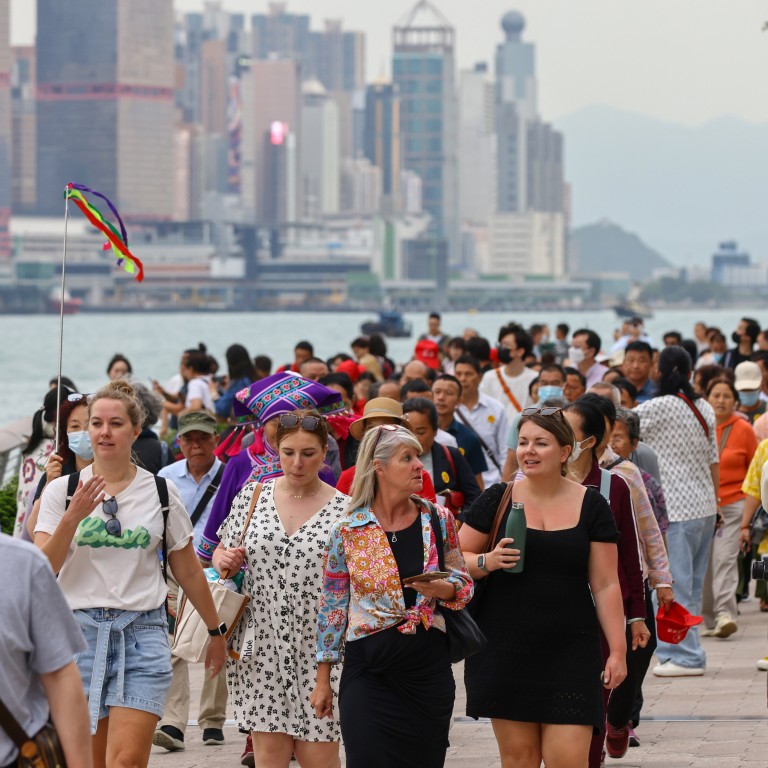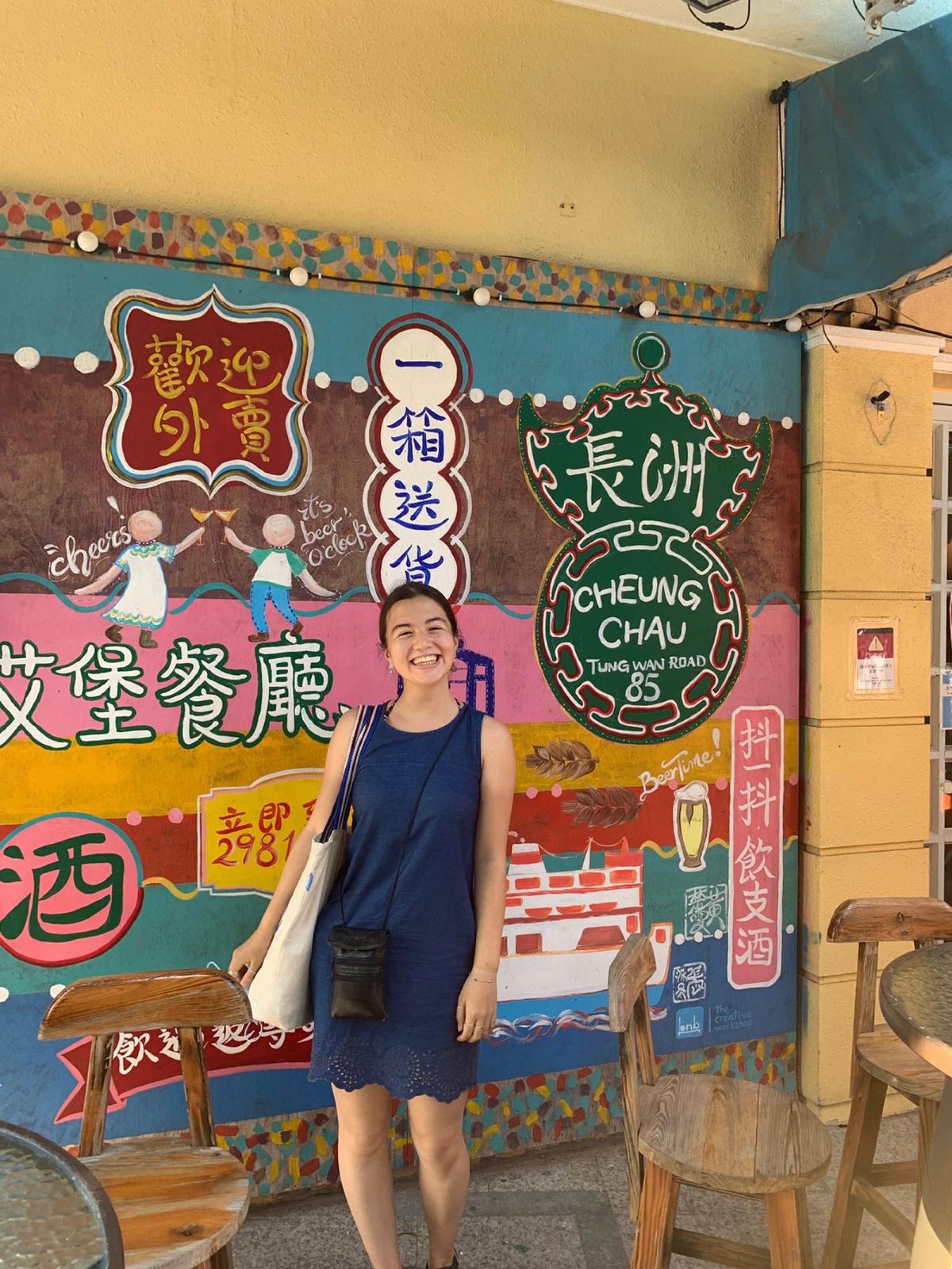
The price to pay: Hong Kong expats weigh expensive costs against opportunities for jobs, chance to live the good life
- Expats focus on trade-offs while living in costly Hong Kong, as surveys confirm what they already know
- City drops to No 2 in one global cost of living ranking, a sign that rents have fallen in areas preferred by expats
English language tutor Alice Wong moved to Hong Kong last August and was stunned to find the biggest chunk of her pay going toward rent.
Raised in Manchester by her British mother and Hongkonger father, she said a 245 sq ft flat in Mong Kok cost her and her flatmate HK$11,000 (US$1,400) a month.
“One-third, if not more, of my wages was just going on rent, and then with living costs, the rest was gone. I was pretty much always living pay cheque to pay cheque,” she recalled.
She recently switched to a higher paying job and moved to a 220 sq ft flat in Prince Edward that cost HK$6,800 a month. The lower rent made a difference for Wong, who moved to the city to get to know her Hong Kong relatives better.
Hong Kong still world’s most expensive city for expats, Singapore in second: survey
“Costs for goods and services in Hong Kong rose at multi-year highs, showing that the city was not spared from the wave of inflation throughout the world in the past year,” said Lee Quane, the company’s Asia regional director.
“In spite of this, Hong Kong fell in our rankings as the increase in prices of day-to-day goods and services was tempered by falls in accommodation costs in the city.”

And in the latest World Competitiveness Yearbook 2023 published by the International Institute for Management Development (IMD) on Tuesday, Hong Kong ranked highest for “prices”, which took into account consumer price inflation, IMD’s cost of living index, office and flat rents, and food and petrol prices. It was bottom out of 64 places surveyed for competitiveness.
Economist Simon Lee Siu-po, an honorary fellow at Chinese University’s Asia-Pacific Institute of Business, said the IMD ranked countries, regions and cities, whereas ECA and Mercer ranked cities only.
So while New York might have been more expensive than Hong Kong, it was ranked as part of the United States for the IMD survey and areas outside American city could have lowered the country’s overall living costs.
Hong Kong loses spot ‘as most enticing city in China’ for East Asian expats
Gary Ng, senior economist at Natixis, said the focus of the surveys was different. “The ECA report is for expats and targets areas commonly sought by expats,” he said.
The ECA report focused on expatriate cost of living for companies to consider when relocating staff, whereas IMD’s ranking was part of a wider survey on the competitiveness of economies and not focused on expatriates.
The ECA survey covered the cost of food, household and recreational goods, leisure services, clothing, electrical goods, motoring, eating out, alcohol and tobacco, utilities and public transport.
Mercer covered a long list, including cost of housing, transport, food, clothing, household goods and entertainment.

Regardless of the survey outcomes, expatriates in Hong Kong told the Post that their experience showed just how expensive it was in the city, although the trade-off came in the opportunities available.
American Tom Rippe, a senior copywriter who has spent 20 years over the past three decades living outside the US, said Hong Kong was the most expensive place he had ever lived in.
The 50-year-old Minneapolis native lived and worked in Tianjin and Beijing in mainland China, Osaka and Kyoto in Japan, Kigali in Rwanda, and Chicago and Los Angeles in the US.
He and his girlfriend live on Lamma Island, paying HK$18,800 a month for a 700 sq ft flat with a rooftop of the same size.
Plenty of tech jobs in Hong Kong but few takers, and bosses are fed up
Rippe said rent took up the largest proportion of his income, but food and utilities costs had risen since he arrived in Hong Kong in 2020.
“As long as there are opportunities, the cost of living is bearable,” he said, adding that this was no different than moving to bigger cities within the US or the mainland.
“The question has always been, can I make money here? It’s a very pragmatic thing for most people – as long as you can make more money than you spend, you’re OK.”
He said it appeared that rents were coming down on Lamma Island, which was popular with expatriates, as some flats had been vacant for months.
“If you go past the agent shops and look online, there are a lot more listings. So rent, which is the big ticket item, is anecdotally coming down,” he said.
For Briton Mat Bate, 44, who works in wealth management and has lived in Hong Kong for 11 years, high living costs are offset by the favourable tax environment.
He and his wife work full-time and have two children aged three and four. They pay close to HK$500,000 a year on international school tuition fees, the school bus, uniforms, lunches and extracurricular activities.
‘Life’s better in prison’: rising cost of living hits Hong Kong’s poor hard
The family and their helper live in a 1,000 sq ft flat in Mid-Levels West at what he described as “market rate” rent.
“It just means you can’t save as much for your retirement. I’d love to get a bigger place with a bit more space,” he said.
“If you’re disciplined, you can save. You don’t have to go shopping at Marks and Spencer all the time, you can be a bit more savvy and you don’t need to eat out.”
Bate and Rippe said they also liked Hong Kong for its convenience and the easy access to an array of activities such as hiking and visiting the beach.
For tutor Alice Wong, getting used to the high cost of living was painful, but living in the city has allowed her to connect with her father’s extended family and rediscover her roots.
“I probably will move back to Europe eventually,” she said. “But it’s worth staying here for now because I have a lot of personal ties.”

